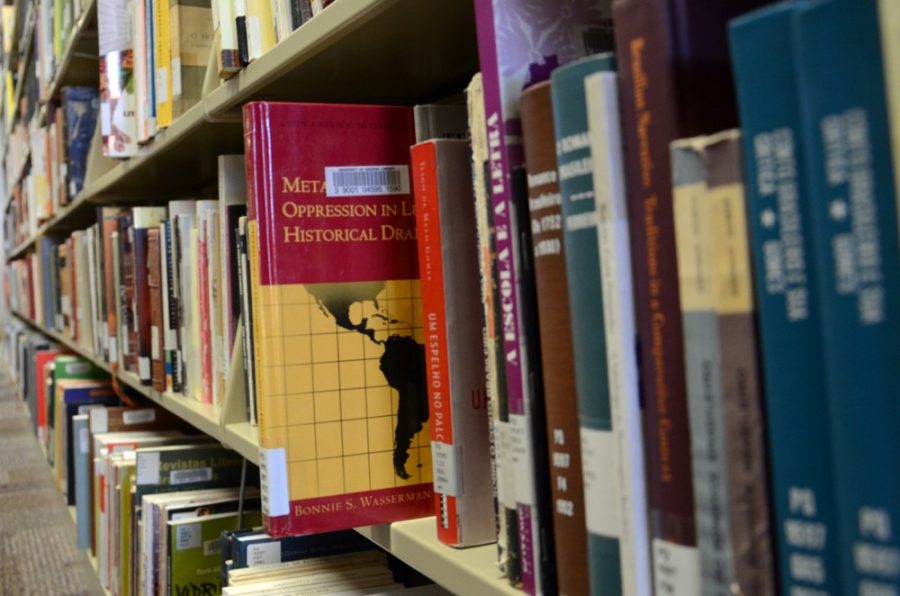From Japanese geishas to African anti-colonialists, this year’s Humanities Week lectures will explore various shades of female empowerment throughout history.
Starting Monday afternoon in the Dorothy Rubel Room of the UA Poetry Center, Humanities Week hosts the first of 10 different lectures all revolving around the theme “Trailblazers & Hellraisers.” Most lectures will cover a new topic about a region of women who have broken society’s mold.
Ending on Friday evening with a special presentation titled “Wives, Widows & Whoopee: The Lives and Loves of Russian Women,” Humanities Week will travel the globe through its stories on women who strived to achieve independence. This final presentation on Russian women will include colorful stories of strong matriarchs who waged war with Napoleon and dressed up as men.
“Our work in the humanities is centered around explorations of the human experience with a global perspective,” said Mary Wildner-Bassett, dean of the College of Humanities.
The lectures begin with a talk by Maggie Camp, an assistant professor of East Asian Studies, on the paradoxical identity attributed to Japanese women. Fabian Alfie, the department head of French and Italian, will follow Camp in a discussion on an Italian, 13th century female poet, who earned the praise of her male counterparts, which was a commendable feat in her time.
“Women were commonly viewed as naturally more prone to lustfulness and less intellectually developed than men,” Aflie wrote in the article “Like She-Cats in January: An Anonymous Fifteenth Century Misogynistic Sonnet.”
Aflie’s research specializes in medieval literature, and he has previously delivered a talk for Humanities Week in 2012 titled “DANTE #&@%!: Dante’s Poetry of Insult.”
Bonnie Wasserman, a visiting assistant professor in African Studies, will shift Monday’s discussion from medieval Italy to post-colonial Africa as she presents various literary representations of “Mother Africa” across different cultures. Wasserman is an expert in Portugese-speaking African literature, and has written a book on the metaphorical oppression found in this literary genre.
By Friday afternoon, the conversation will travel to Germany in a talk on the bobbed-haired, chain-smoking modern women of the Weimar Republic. Presented by Barbara Kosta, the department head of German Studies, this lecture will delve into the emergence of socially independent, metropolitan women in Berlin after World War I.
Taking a break from these worldly lectures on Thursday, Humanities Week will welcome poet Benjamin Alire Saenz to read pieces from his published works. The recipient of the 2013 PEN/Faulkner Award for fiction, Saenz has been named one the “Fifty Most Inspiring Authors in the World” by Poets and Writers Magazine.
“I want my writing to be taken seriously, because being a writer is the most important identity I have,” Saenz said in a 2013 interview with the Los Angeles Review of Books. Saenz said the memories of his deceased mother remain a powerful influence in his writing, as he considers her the most intelligent women he’s encountered.
Love for the ladies continues up through Friday evening — with a reception of desserts and champagne at 6 p.m. preceding the presentation by the Department of Russian and Slavic Studies at 7 p.m.
This is the seventh year the College of Humanities has hosted these week-long lecture series. Previous years have seen lectures cover topics such as the historical significance of “Downton Abbey” and the cognitive appeal of Internet memes.
All lectures are free and open to the public. A special reception with gelato ice cream will kick off Humanities Week on Monday at 5:30 p.m.
_______________
Follow Kevin C. Reagan on Twitter.



